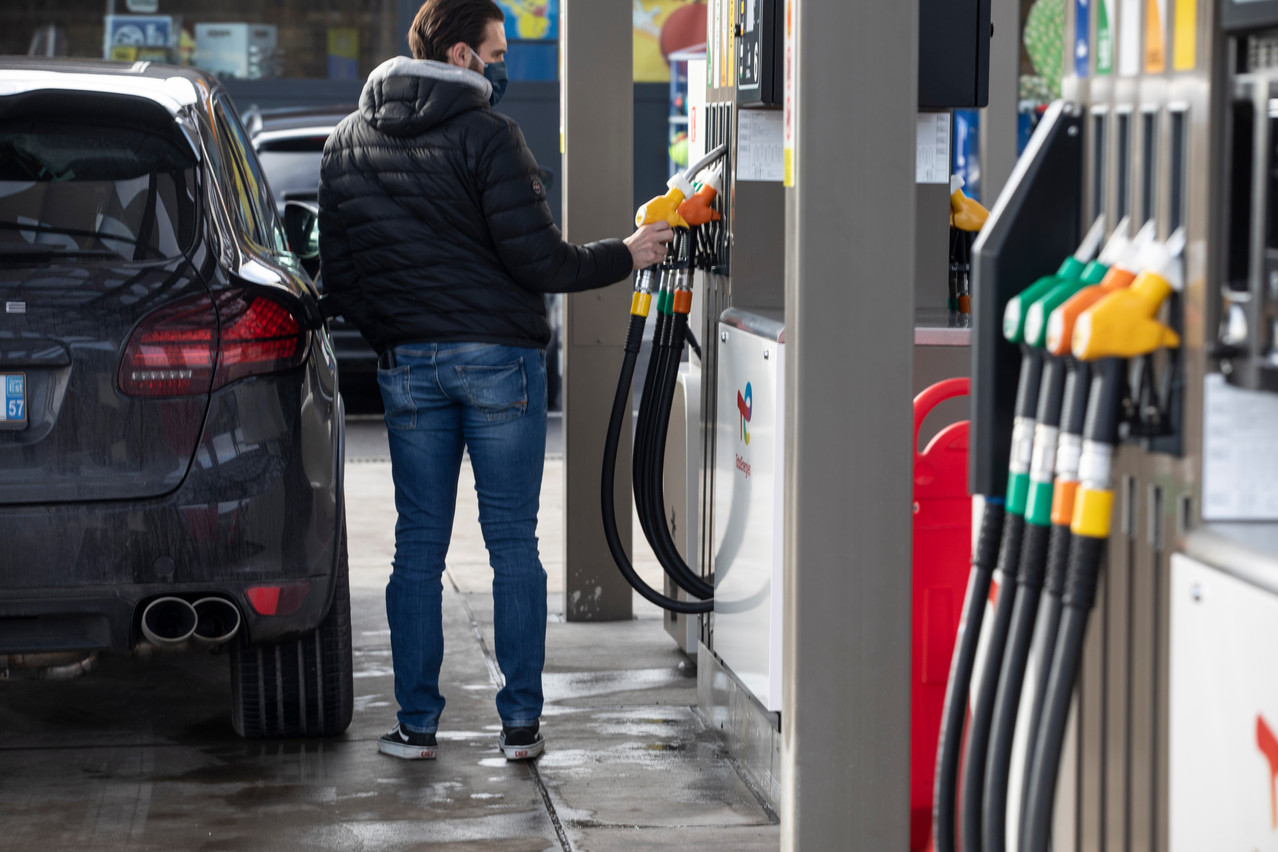The days of stopping off in Luxembourg to fill up with fuel seem to be over for tourists and residents across the border. The prices at the pump on the French side currently appear to be the most attractive in the greater region, with differentials of between 16 and 31 cents compared to the grand duchy. On a 50-litre fill-up, for example, the gain varies between €8 and €15.5 depending on the fuel.
"We have seen that the interventions on prices by the French and German governments in recent months have directly led to a loss of competitiveness of the stations in Luxembourg, and therefore to a reduction in sales volumes," admits Jean-Marc Zahlen, secretary general of energy association Groupement énergies mobilité Luxembourg (GEML).
He estimates the reduction in sales volumes to be between 35% and 45% for service stations located along the French border.
Over the first eight months of this year, we are experiencing a drop in diesel volumes of around 9%. We are therefore a long way from the pre-crisis volumes
The sectoral organisation, which is a member of the Union des entreprises luxembourgeoises (UEL), is expected to give details of sales trends at a press conference to be held later. But “over the first eight months of this year, we are experiencing a drop in diesel volumes of around 9%. We are therefore a long way from the pre-crisis volumes,” says Zahlen.
Luxembourg has around 235 service stations with 2,200 employees, according to the energy association's data. “The GEML is a key player in the energy transformation, we want to actively support this change and we are asking for political predictability, preferably in line with European policy in this area,” he adds.
Declining attractiveness
The narrowing of the price differential with neighbouring countries is not new. The group already sounded the alarm when Belgium became more attractive to professional hauliers in spring 2019.
But in recent months, the tax rebates on excise duties in member states have accelerated the trend. It has become more attractive to fill up with diesel in France, while petrol has become more attractive across the border in early summer.
Similarly, the evolution of the car fleet, marked by the decline of diesel engines in new registrations, has also become evident. In the first eight months of this year, the volume of petrol sold in Luxembourg rose by around 11%, according to GEML.
Fuels earn as much as tobacco
On the public finance side too, the decline in diesel sales in favour of petrol is being felt. In August 2022, excise duties on road diesel brought in €398.5m for the state, i.e. 10.8% less than in August 2021. Conversely, petrol sales brought in 10.6% more than in August 2021, reaching €153.3m.
It should be noted, however, that while tourism at the pump is slowing down, Luxembourg remains significantly more attractive than its neighbours for the purchase of alcohol and tobacco. Excise duties on these two products rose sharply in August 2022, by 11.6% and 18.5% respectively, with €43.3m levied on bottles and €553.4m on manufactured tobacco. This amount corresponds roughly to the amount of excise duty collected on all road fuels. This story was first published in French on . It has been translated and edited for Delano.
